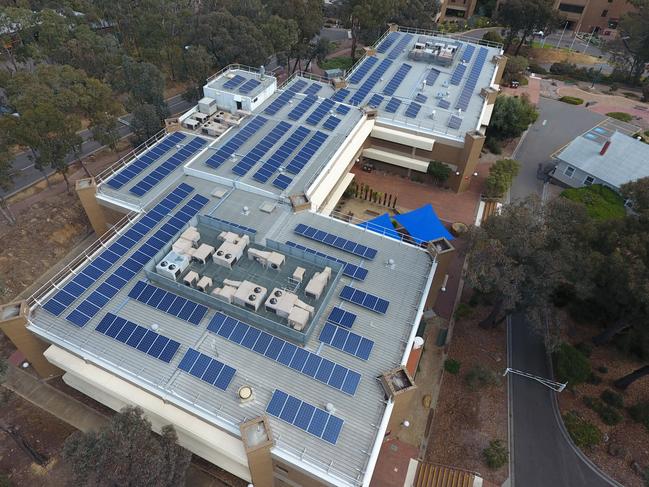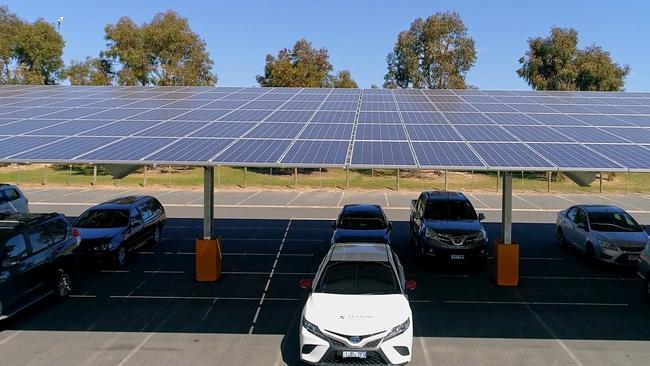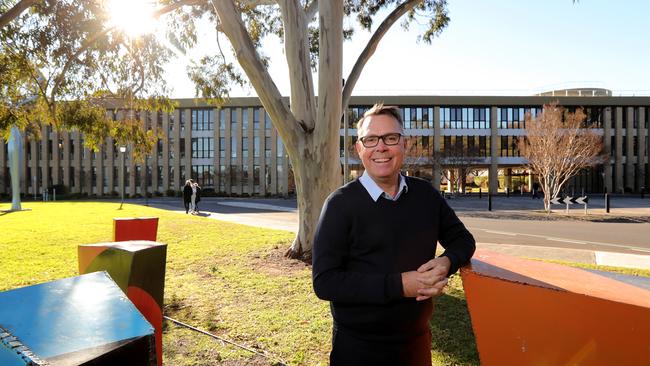La Trobe University plan for solar panels, LED lighting and compost technology
A $75 million initiative with 20 separate projects will create Victoria’s first emissions-free university. This is how campuses around the state will cut their carbon footprint.

North
Don't miss out on the headlines from North. Followed categories will be added to My News.
La Trobe University will become Victoria’s first emissions-free university under a $75 million program.
The initiative will consist of 20 separate projects designed to cut pollution to zero by 2029.
It includes the installation of more than 7000 solar panels and more than 50,000 high-efficiency LED lights.

A composter capable of turning 100kg of organic waste into 20kg of compost has already been installed at the Melbourne campus and La Trobe has a goal of diverting 100 per cent of campus organic waste from landfill.
The university also has data researchers and students using the La Trobe Energy Analytics Platform, allowing them to monitor and adjust energy use in real time to reduce consumption.
La Trobe vice-chancellor professor John Dewar said reducing emissions was morally right and made economic sense.
“We are making genuine, local changes to become more efficient and make a deliberate switch to renewables,” he said.

La Trobe vice-chancellor professor John Dewar said reducing emissions was morally right and made economic sense.
Campuses in Bundoora, the CBD, Albury-Wodonga, Bendigo, Mildura, Shepparton and Sydney will all play a part.
More than 3300 solar panels have already been installed at regional campuses, which will become carbon-neutral by 2022.
The university is also in discussions with industry and government to create solar farms on their campuses.
MORE NEWS: TRADERS FIGHT CROSSING CLOSURE
VOTE FOR MELBOURNE’S BEST FISH AND CHIPS
CHAINSAW ROGUES CUT DOWN PROTECTED TREES
La Trobe vice-president Natalie MacDonald said their “net zero commitment” built on the sustainability efforts already underway.
Ms MacDonald said the university was the first in Australia to divest from fossil fuel intensive investments and to receive a six-star rating for sustainable large-scale developments.
La Trobe reduced its emissions from 61,811.50 tonnes of CO2 in 2011 to 50,119.65 tonnes of CO2 in 2017.


